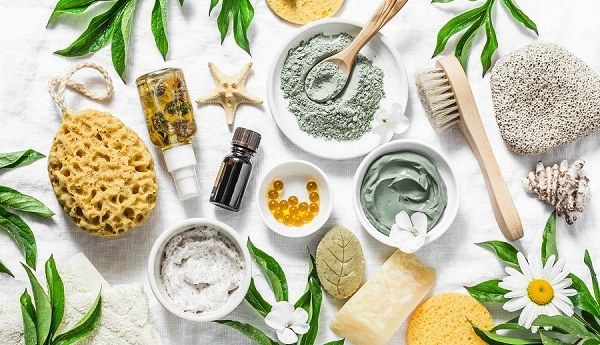The India Organic Personal Care Products Market has been experiencing a transformative growth curve, backed by increasing consumer consciousness, a cultural affinity for natural remedies, and shifting preferences towards sustainability and wellness. According to a recent TechSci Research report, the market was valued at USD 1074.24 Million in 2024 and is projected to reach an impressive USD 2425.58 Million by 2030, registering a robust CAGR of 14.54% during the forecast period.
This remarkable progression is not just a statistical development but a reflection of a deeper societal change where wellness, health, and eco-consciousness are becoming intrinsic parts of consumer lifestyles. The rising inclination towards organic products is redefining the contours of the Indian personal care industry.
Industry Key Highlights
Market Value: USD 1074.24 Million in 2024
Forecasted Value: USD 2425.58 Million by 2030
CAGR (2024-2030): 14.54%
Dominant Distribution Channel: Supermarkets and Hypermarkets
Leading Region: South India
Key Ingredients in Demand: Aloe vera, neem, turmeric, sandalwood, essential oils
Consumer Shift: From synthetic to organic, cruelty-free, and eco-friendly products
Download Free Sample Report - https://www.techsciresearch.com/sample-report.aspx?cid=7475
Market Drivers: Fueling the Rise of Organic Personal Care Products
1. Health and Ingredient Awareness: The modern Indian consumer is increasingly reading labels and questioning the safety of conventional cosmetic ingredients. Harmful substances like parabens, sulfates, and synthetic fragrances are being replaced with nature-based alternatives. This shift has made room for a wide array of organic personal care products that promise both safety and efficacy.
2. Influence of Ayurveda and Traditional Wisdom: The blending of ancient Ayurvedic knowledge with modern research is reshaping product innovation. Ayurvedic formulations offer time-tested solutions using ingredients like tulsi, bhringraj, sandalwood, and more. Brands that respect these traditions while delivering dermatologically tested results are seeing immense success.
3. Rising Disposable Incomes: The aspirational middle class and urban millennials with increased spending power are prioritizing quality over cost. They're willing to invest in premium organic care products that align with their values of health, ethics, and sustainability.
4. Eco-Conscious Consumption: India is witnessing a growing segment of eco-conscious buyers. Recyclable packaging, vegan formulations, and zero-waste commitments are factors influencing purchase decisions. This green movement is gaining momentum, especially among Gen Z and millennials.
5. Expanding E-Commerce Landscape: Online platforms have significantly amplified the accessibility of organic products, even in Tier II and Tier III cities. With influencer-led marketing, detailed product reviews, and doorstep delivery, e-commerce has become a dominant channel for product discovery and purchase.

Emerging Trends in the Indian Organic Personal Care Industry
1. Personalized Organic Beauty: Consumers are gravitating towards tailor-made skincare and haircare solutions that address individual concerns. Brands are leveraging AI and dermatological insights to offer personalized organic regimens.
2. Rise of Indie and Homegrown Brands: The market is witnessing a boom in indigenous startups that emphasize clean, sustainable, and honest beauty. These brands are offering transparency, affordability, and cultural relevance, resonating with younger audiences.
3. Technological Integration: From AI-driven skin diagnostics to augmented reality-based product trials, tech is playing a crucial role in improving the consumer experience in the organic space.
4. Global Appeal of Indian Organic Brands: Brands that began with a domestic focus are now entering international markets, showcasing India’s ancient herbal wisdom on a global stage.
5. Sustainability and Zero-Waste Packaging: Beyond the product itself, there is increased focus on eco-friendly packaging such as biodegradable bottles, reusable containers, and waterless formulas to reduce carbon footprints.
6. Men’s Organic Grooming Segment: An emerging category, male consumers are also showing increasing interest in organic grooming products tailored to their skin and hair needs.
Regional Overview: South India Leading the Charge
South India has emerged as the fastest-growing region in the organic personal care market. This growth is rooted in a strong cultural inclination towards herbal and Ayurvedic treatments, a higher literacy rate, and rising awareness. States like Kerala, Karnataka, Tamil Nadu, and Andhra Pradesh are also hubs for organic farming, ensuring easy availability of raw materials. Urban centers such as Bengaluru and Chennai are driving retail and digital commerce, making South India an epicenter for both consumption and production.
Distribution Channel Insights: Why Supermarkets and Hypermarkets Dominate
Supermarkets and hypermarkets are the preferred retail channels, especially in urban and semi-urban India. Their organized layout, multiple brand offerings, and convenience factor make them ideal touchpoints for customers seeking organic personal care products. Strategic placement, in-store sampling, and promotional campaigns further influence purchasing behavior. Moreover, these outlets offer a tactile experience where customers can physically assess the texture, smell, and packaging—important factors when buying organic products.
Competitive Analysis: Key Players Shaping the Market
The India Organic Personal Care Products Market is highly competitive and fragmented, with a blend of long-established players and dynamic new entrants. Major companies include:
Forest Essentials: Pioneering luxury Ayurvedic beauty, known for premium positioning.
Lotus Herbals (Lotus Organics): Offering a wide range of organic skincare and cosmetic products.
Kama Ayurveda: High-end Ayurvedic formulations focusing on authenticity and heritage.
Vaadi Herbals: Budget-friendly options with herbal ingredients.
Organic India: Known for holistic wellness, expanding into personal care.
The Moms Co.: Specializing in toxin-free care for mothers and babies.
Bella Vita Organic: Popular on digital platforms for youth-oriented organic solutions.
Organic Harvest: Wide product range backed by certified organic ingredients.
Himalayan Organics: Known for supplements and expanding personal care lines.
Juicy Chemistry: Emphasizes 100% organic certification and sustainable practices.
These companies are investing heavily in R&D, brand building, and supply chain optimization to meet the growing demand and compete for consumer loyalty.
Future Outlook: A Blossoming Era of Organic Wellness
The India Organic Personal Care Products Market is poised for exponential growth. With regulatory support, evolving consumer demands, and continuous innovation, the organic beauty segment is moving from niche to mainstream. We can expect greater penetration in rural markets, integration of AI and AR in digital retail, and a stronger focus on sustainability. Companies that prioritize ethical sourcing, transparency, and customer education will lead the race.
Additionally, collaborations between Ayurvedic institutions, modern labs, and wellness influencers will unlock newer segments and markets. India has the potential to become a global powerhouse in organic personal care, drawing from its rich botanical heritage and forward-thinking consumer base.
10 Benefits of the Research Report
Comprehensive Market Overview: Understand current market size and future projections.
Trend Identification: Gain insights into consumer preferences and emerging technologies.
Competitive Landscape: Identify key players and their strategic moves.
Regional Insights: Explore market dynamics across India’s diverse regions.
Channel Analysis: Evaluate the effectiveness of distribution channels.
Consumer Behavior Insights: Understand the psychology and needs of organic product consumers.
Forecast Modeling: Plan business strategies with data-driven future projections.
Investment Guidance: Make informed investment decisions based on market potential.
Policy Impact Assessment: Analyze how government initiatives are influencing market growth.
Customization Options: Leverage customizable data points for specific business needs.
The India Organic Personal Care Products Market is not just an industry trend but a movement toward mindful living. As demand scales up, brands that can effectively marry tradition with innovation, ethics with performance, and local wisdom with global aspirations will undoubtedly thrive in this vibrant landscape.
Contact
TechSci Research LLC
420 Lexington Avenue, Suite 300,
New York, United States- 10170
Tel: +1-332-258-6602
Website: www.techsciresearch.com






